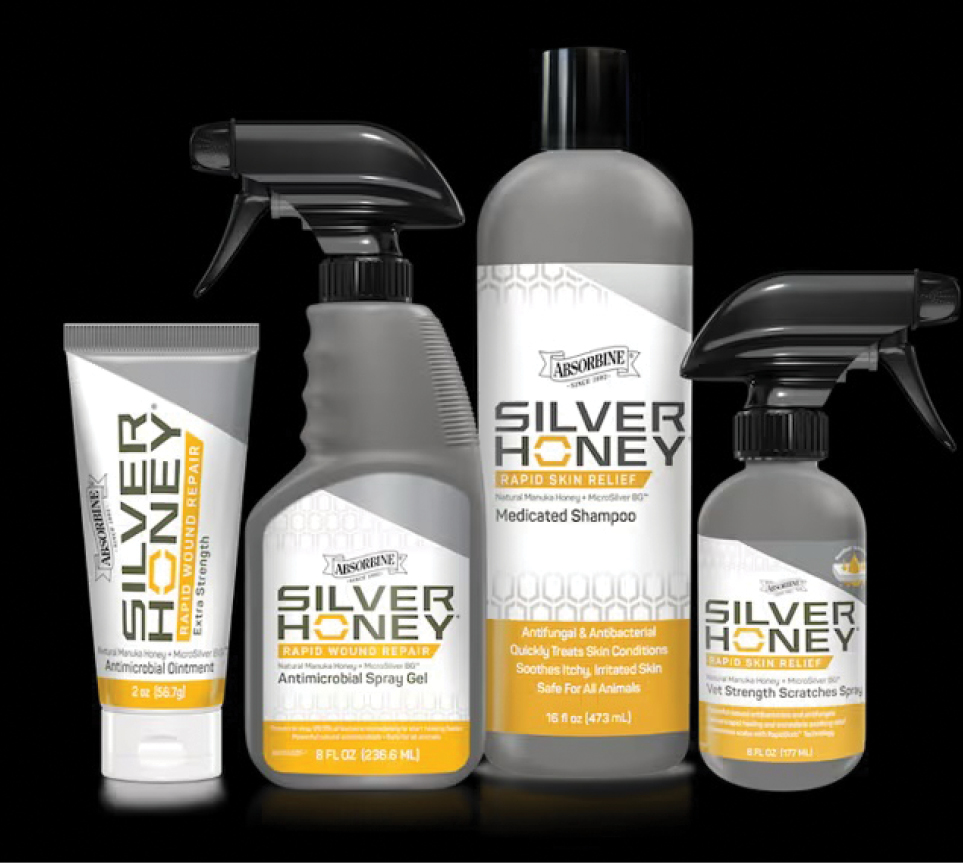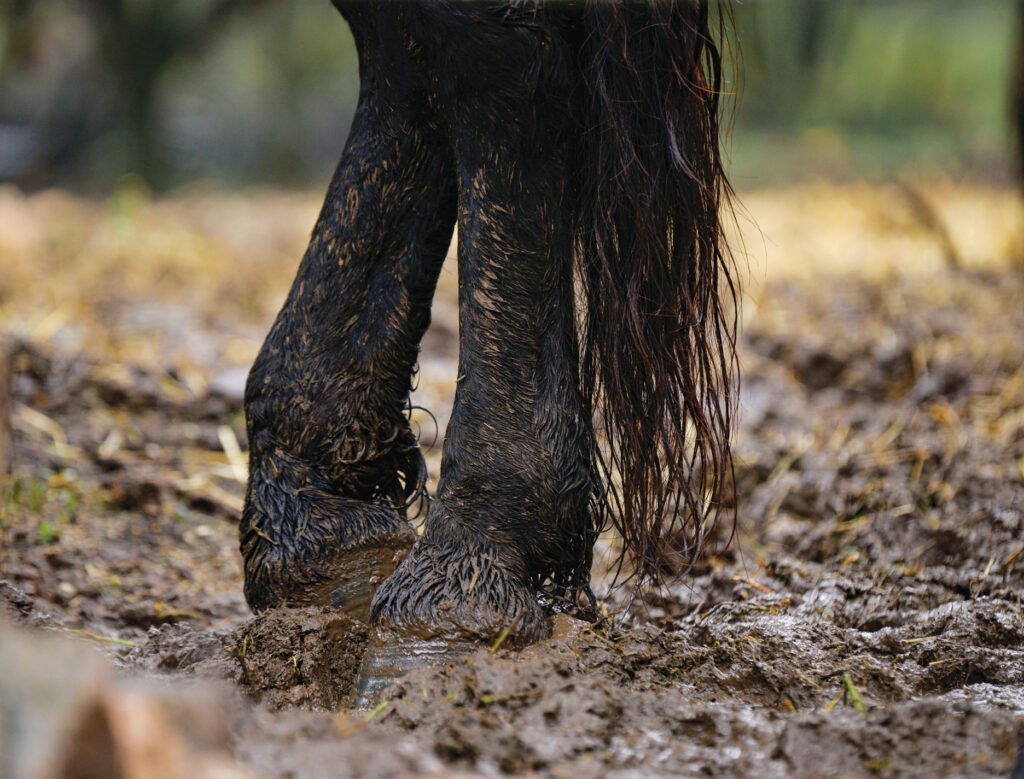When rainy weather arrives, it can bring a host of skin issues for your horse. Prolonged exposure to moisture can create the perfect breeding ground for bacterial and fungal infections, leading to conditions such as rain rot, pastern dermatitis, and allergic reactions to insect bites.

Rain Rot
Rain rot, also known as rain scald or dermatophilosis, is a bacterial infection caused by the bacteria Dermatophilus congolensis.
Cause: The bacteria are usually dormant on the horse’s skin but become active in wet conditions, leading to inflammation, lesions, and scabs in the coat.
Treatment: Mild cases can be managed by bathing the affected area with anti-microbial soap and removing scabs with a curry and brush. It’s important to disinfect grooming tools to prevent spreading the infection. Severe cases may require antibiotics prescribed by a vet.

Pastern Dermatitis
Equine pastern dermatitis, also known as scratches, mud fever, grease heel, and grapes, refers to skin infections around a horse’s lower legs and pasterns.
Cause: The primary cause of pastern dermatitis is a compromised skin barrier, leading to secondary bacterial or fungal infections that can cause swelling, lesions, and scabs. Environmental factors like wet, muddy conditions or unclean stalls can contribute to the development of this condition.
Treatment: Prompt treatment is crucial for pastern dermatitis to prevent lameness. Treatment involves using medicated ointments, antibiotics, cleaning, and clipping the affected area.
Insect Bites
Insect bites can pose skin challenges for horses, especially if they have allergic reactions. Conditions like sweet itch and hives can arise during humid or wet seasons when insects are abundant.
Cause: Sweet itch is triggered by an allergic reaction to Culicoides midges, while hives can result from reactions to mosquitoes, gnats, midges, stings, or medications.
Treatment: Alleviating discomfort is the primary goal when treating sweet itch and hives. Using soothing shampoo, topical ointments, and prescribed medications like steroids and antihistamines can help alleviate symptoms.

